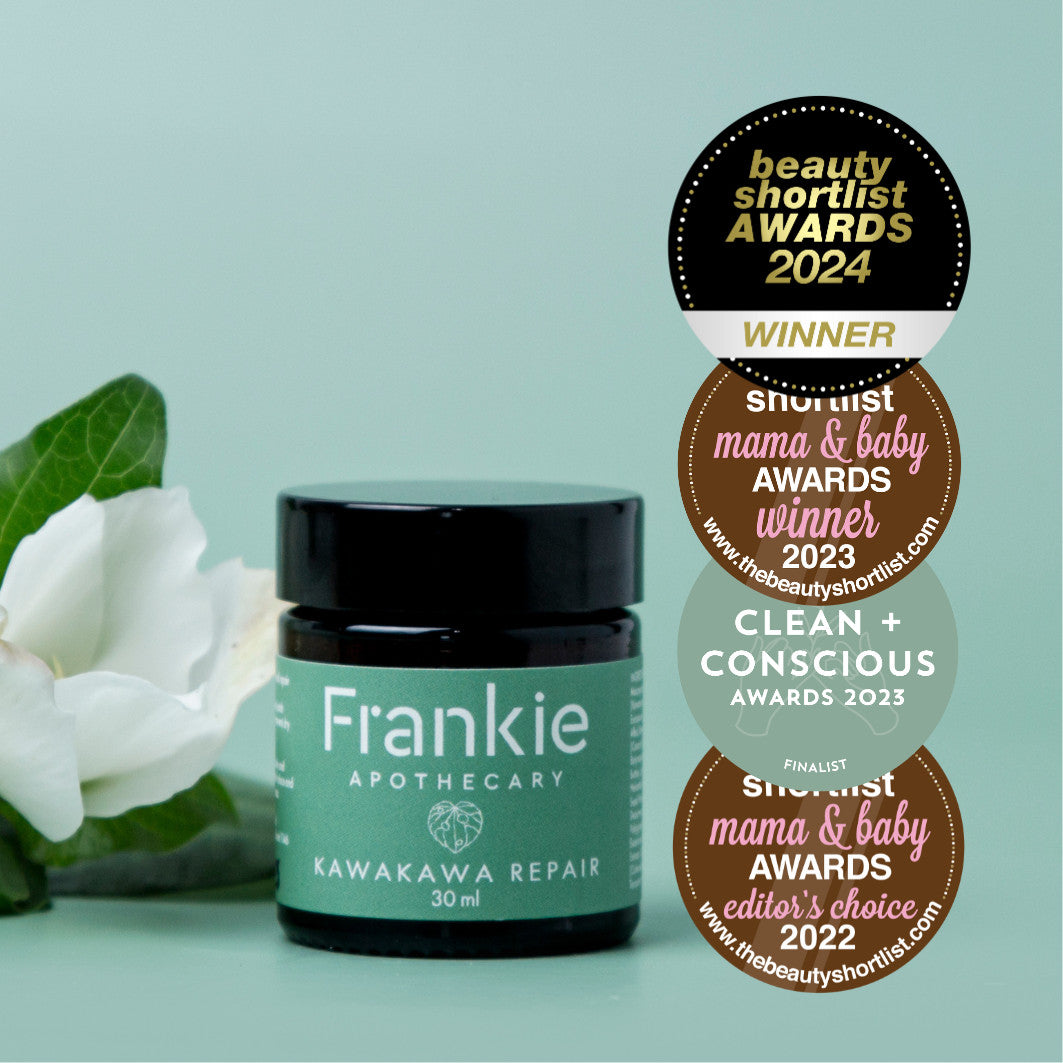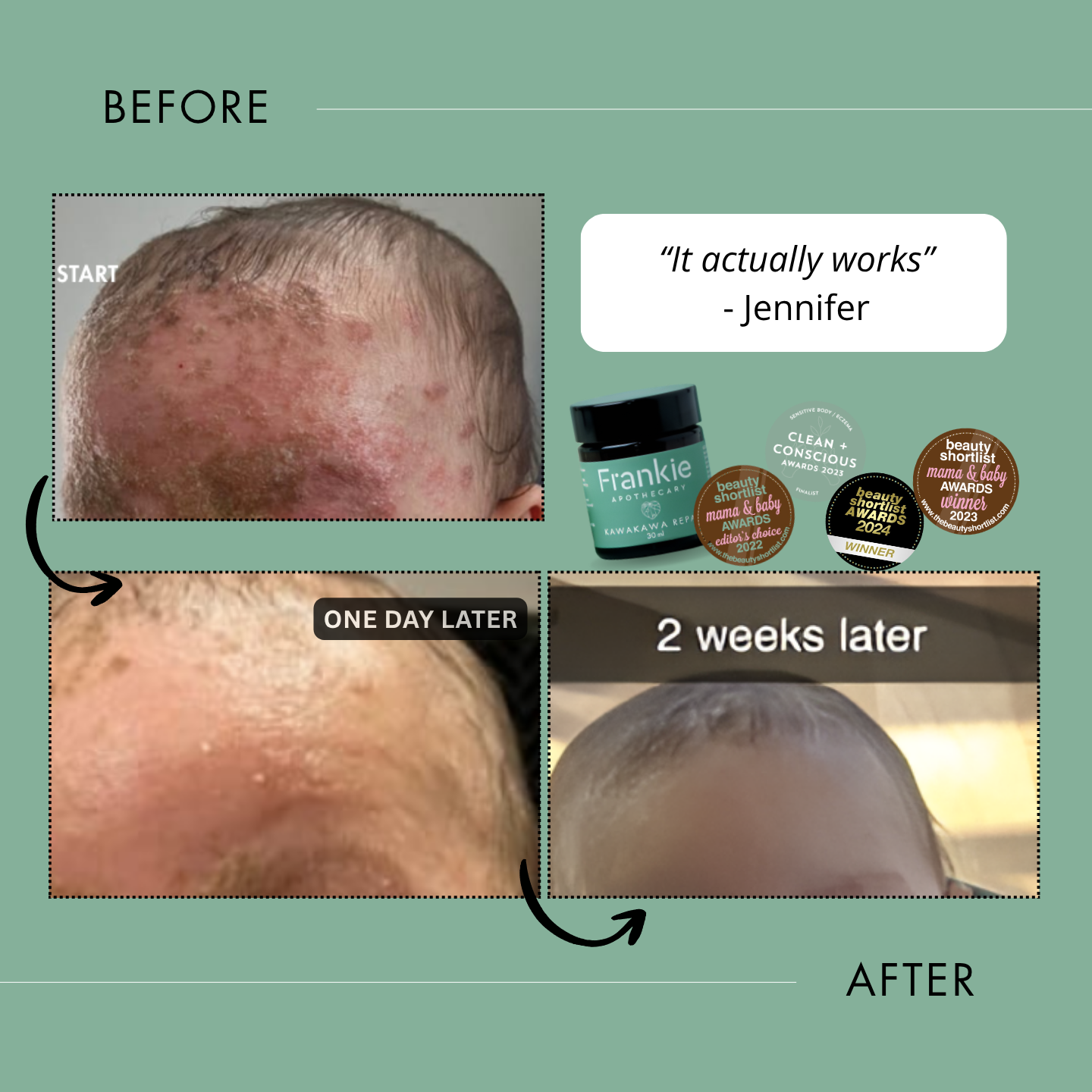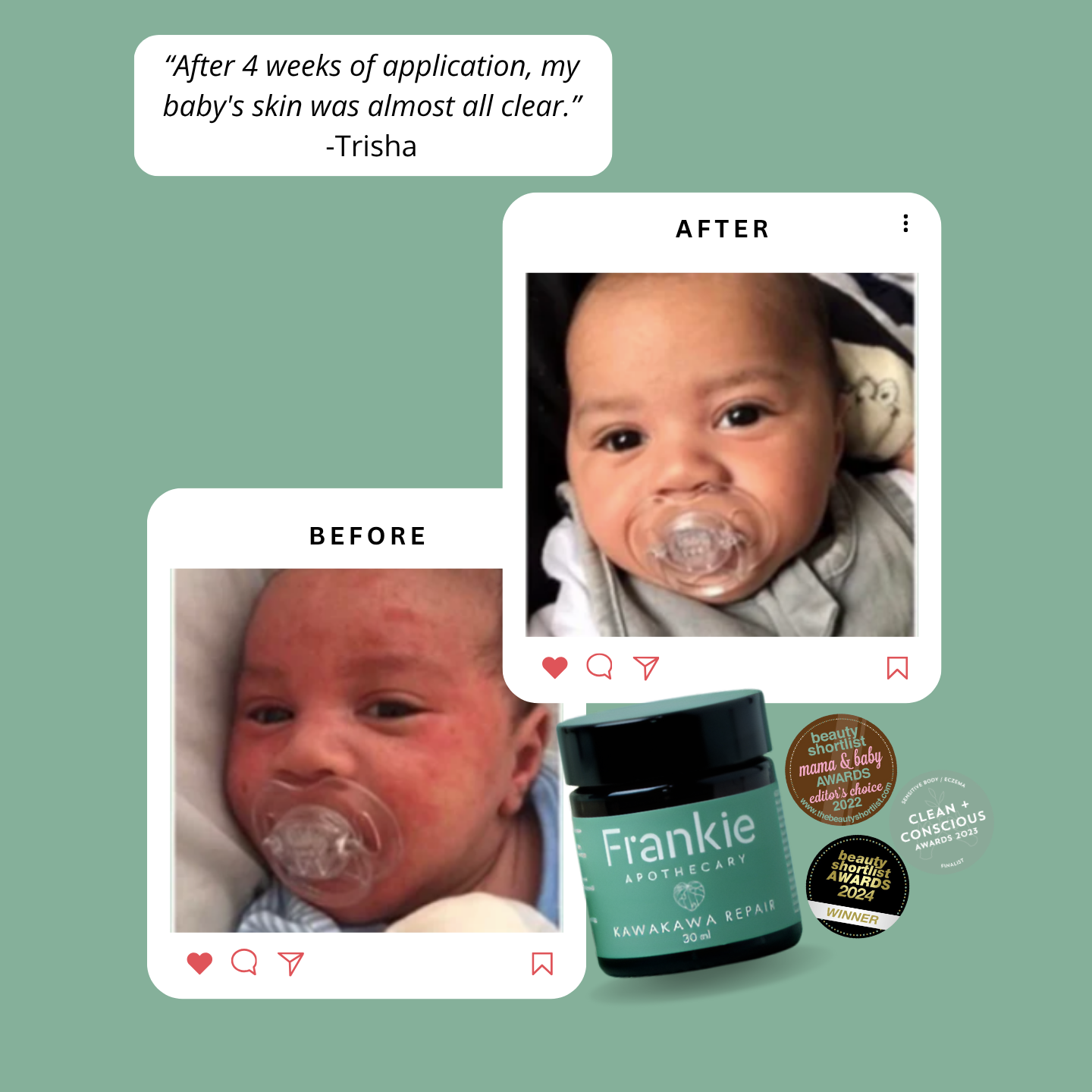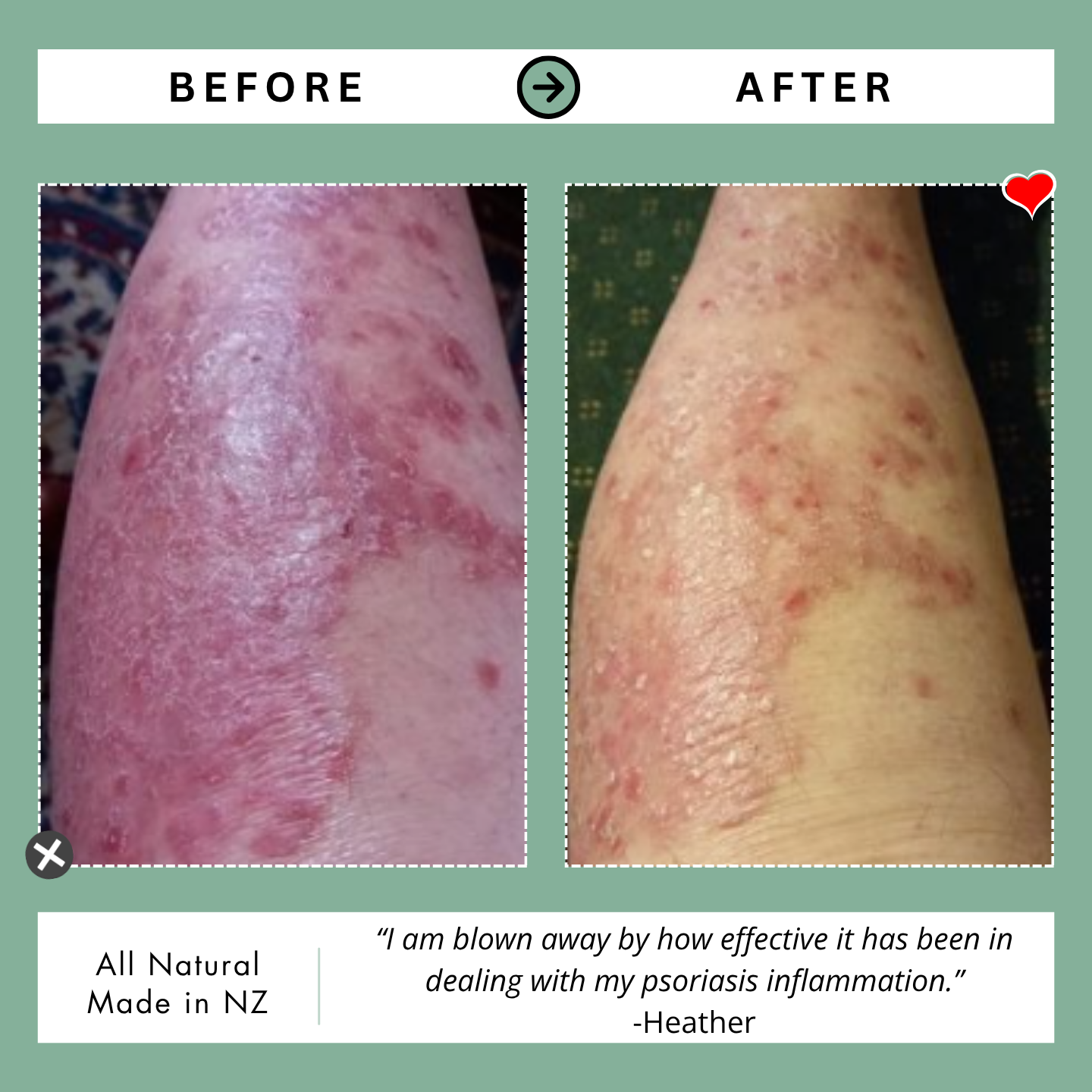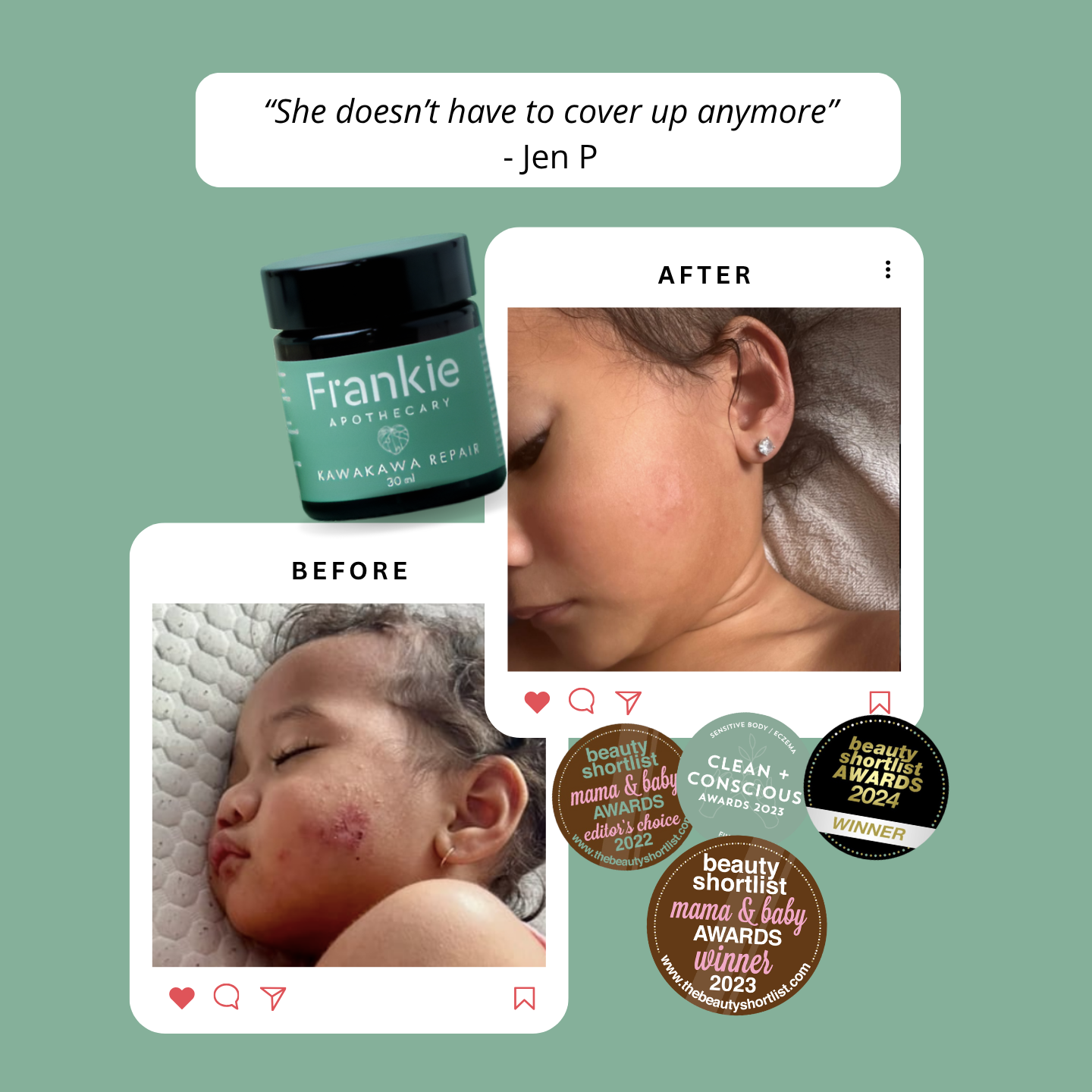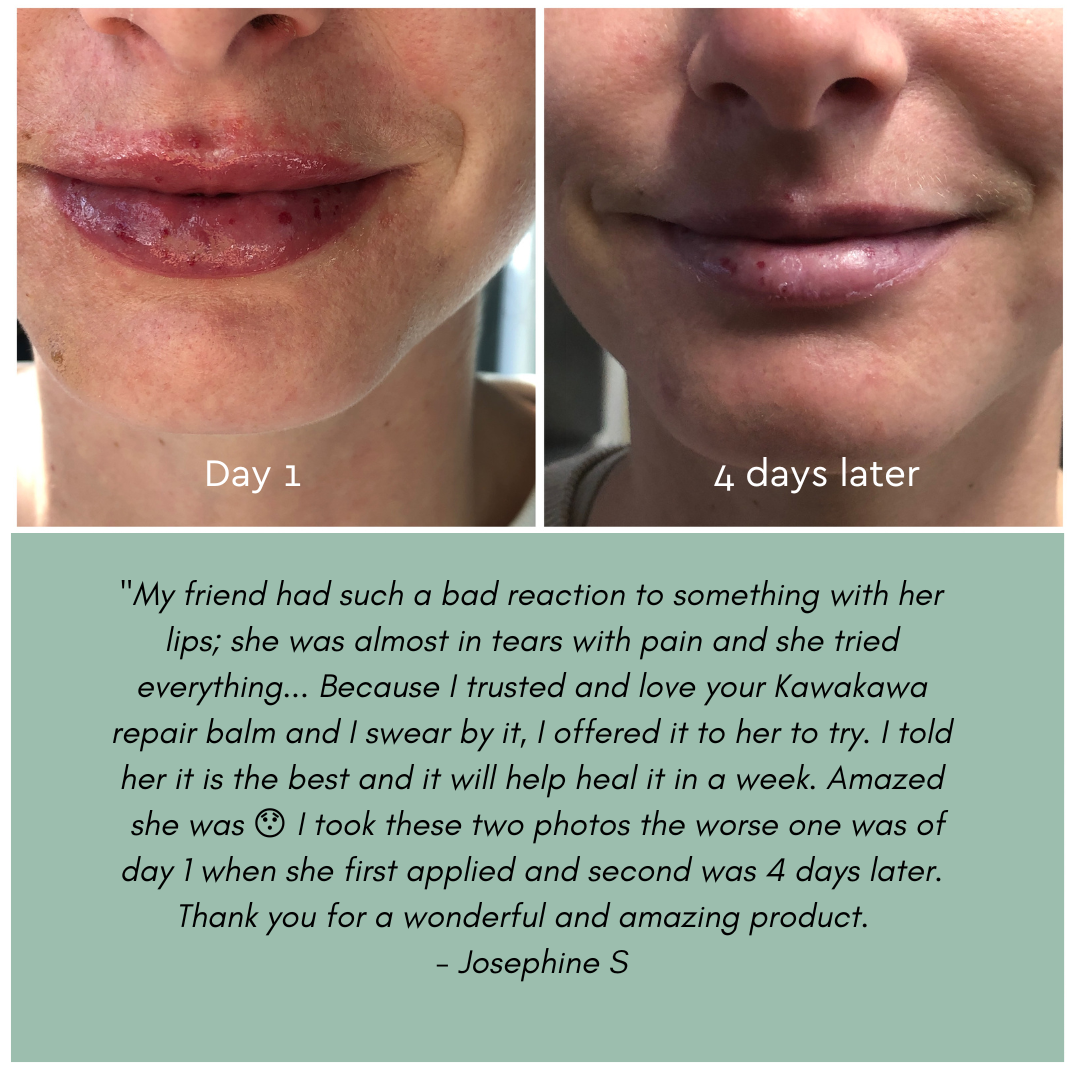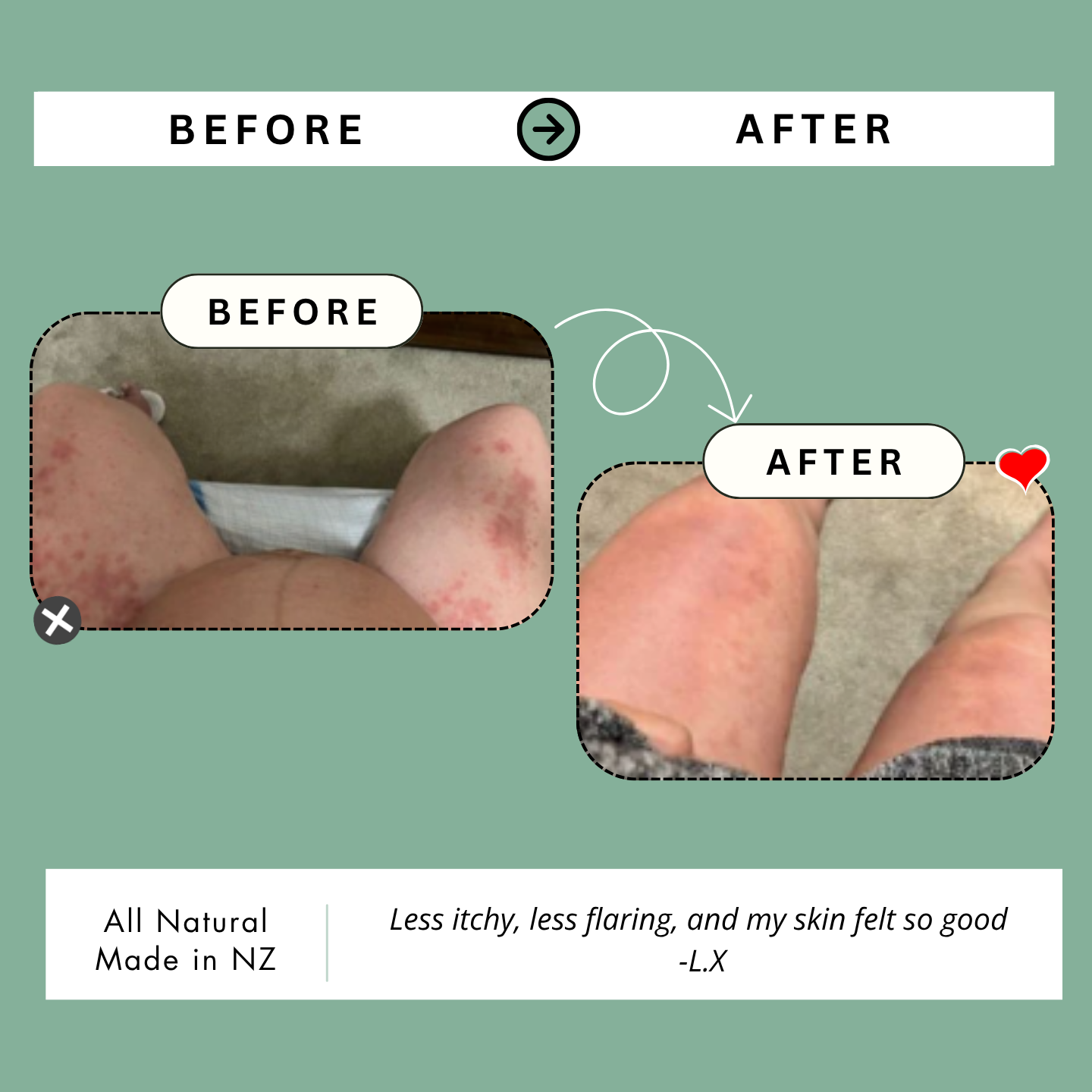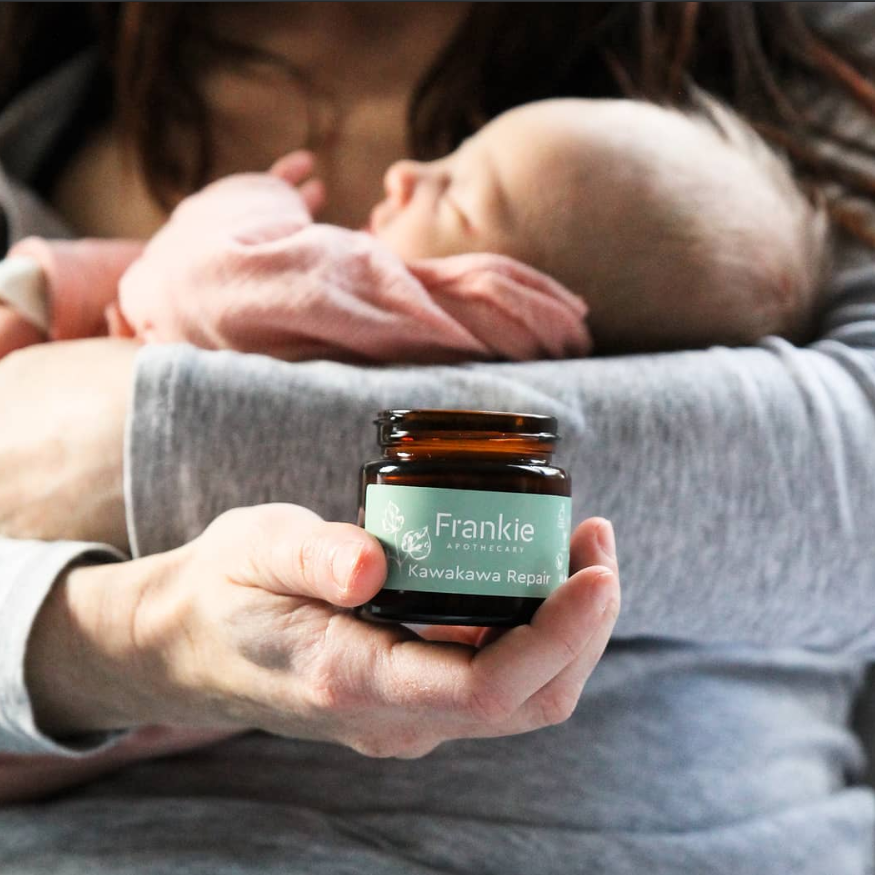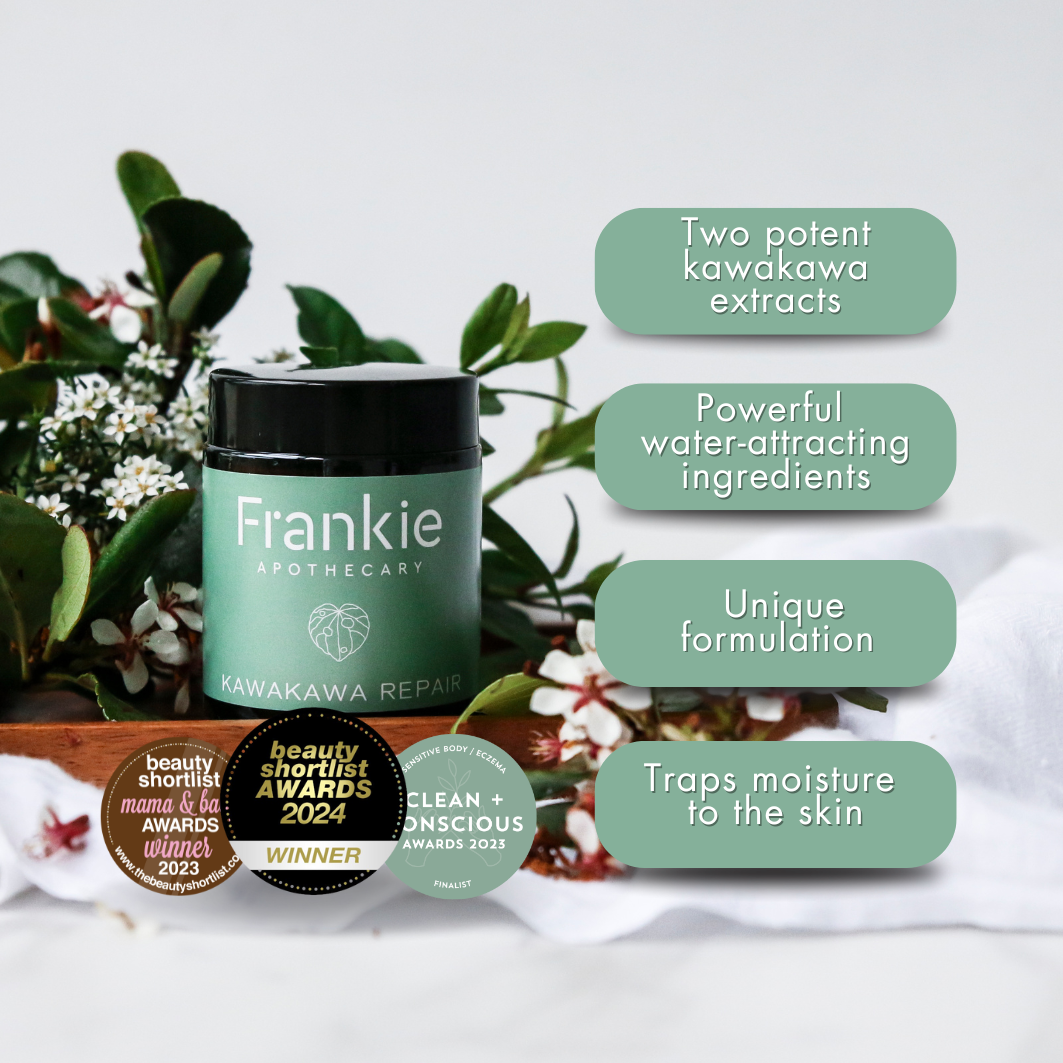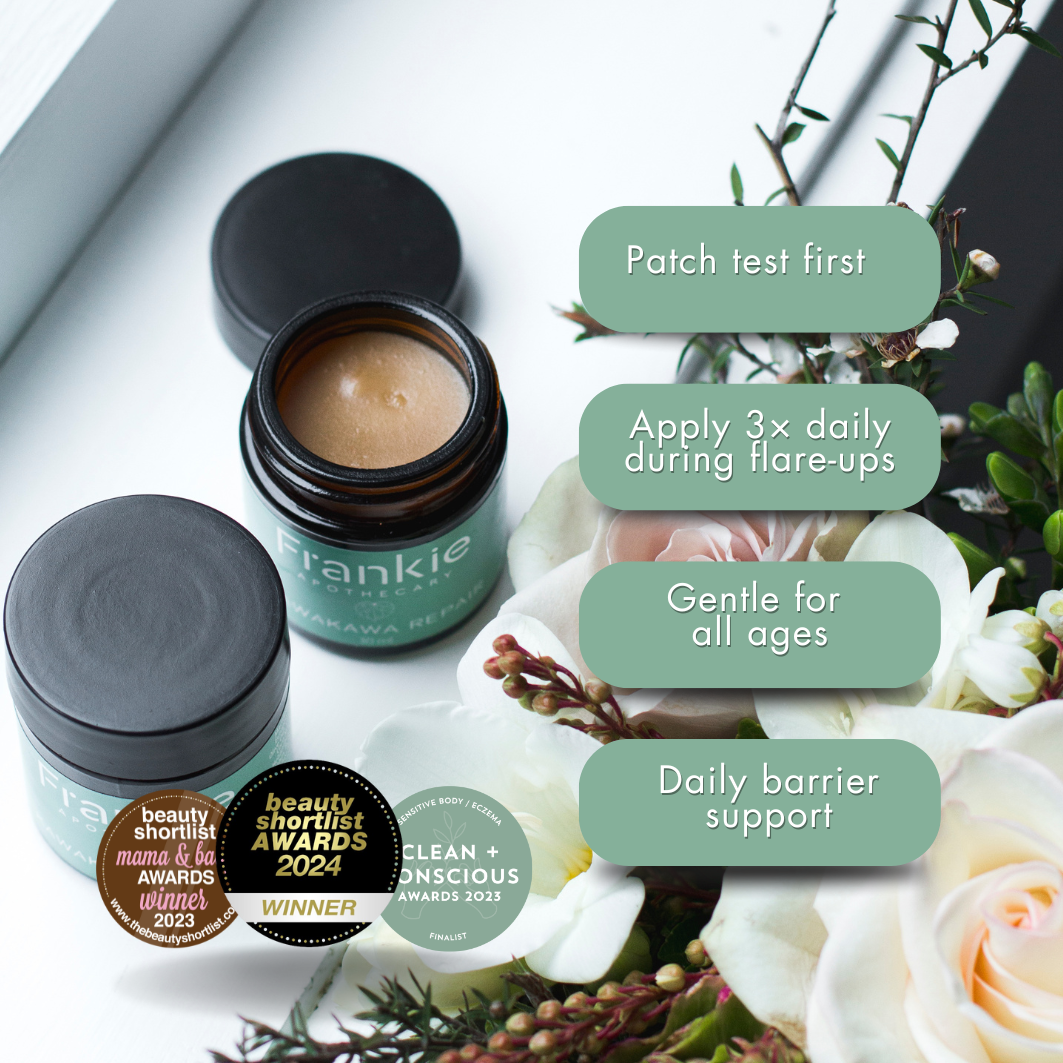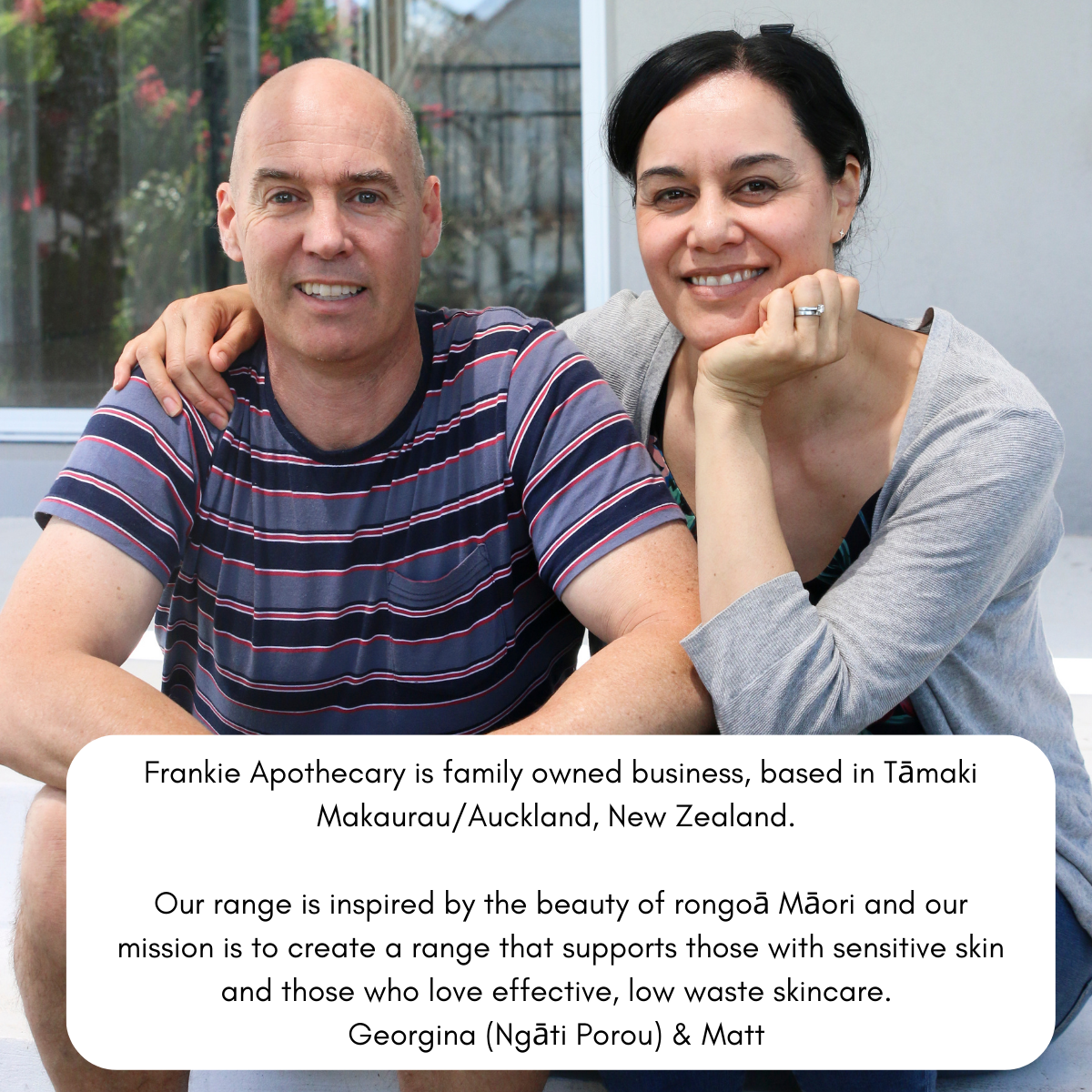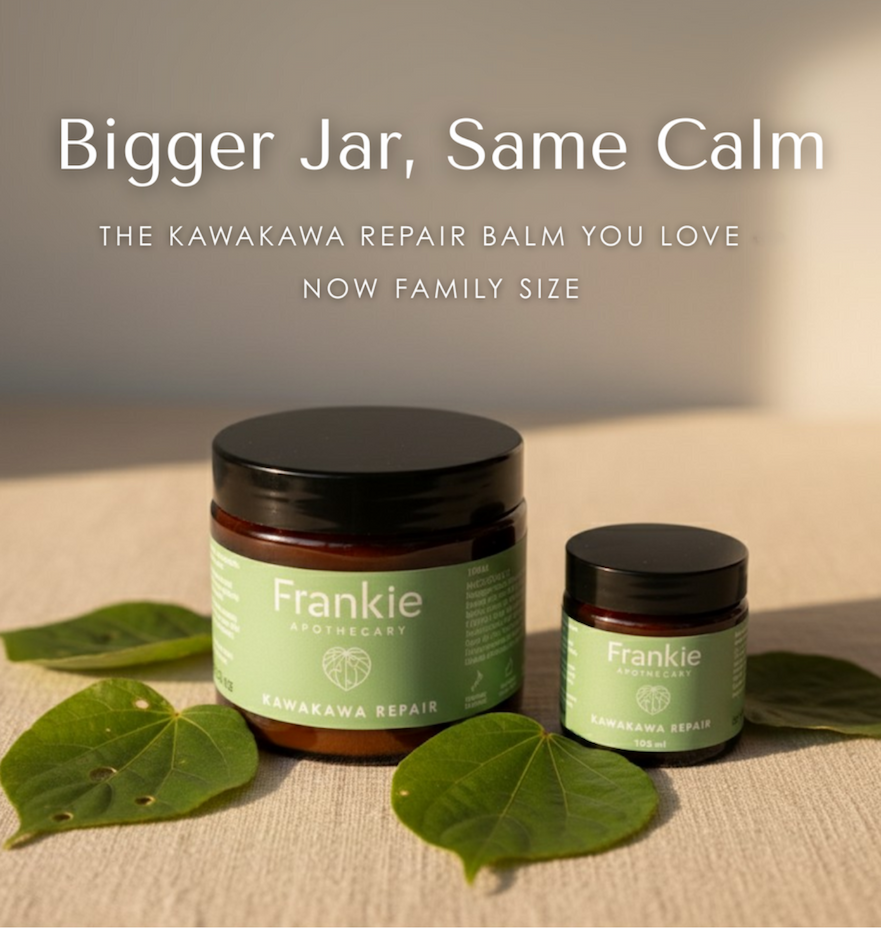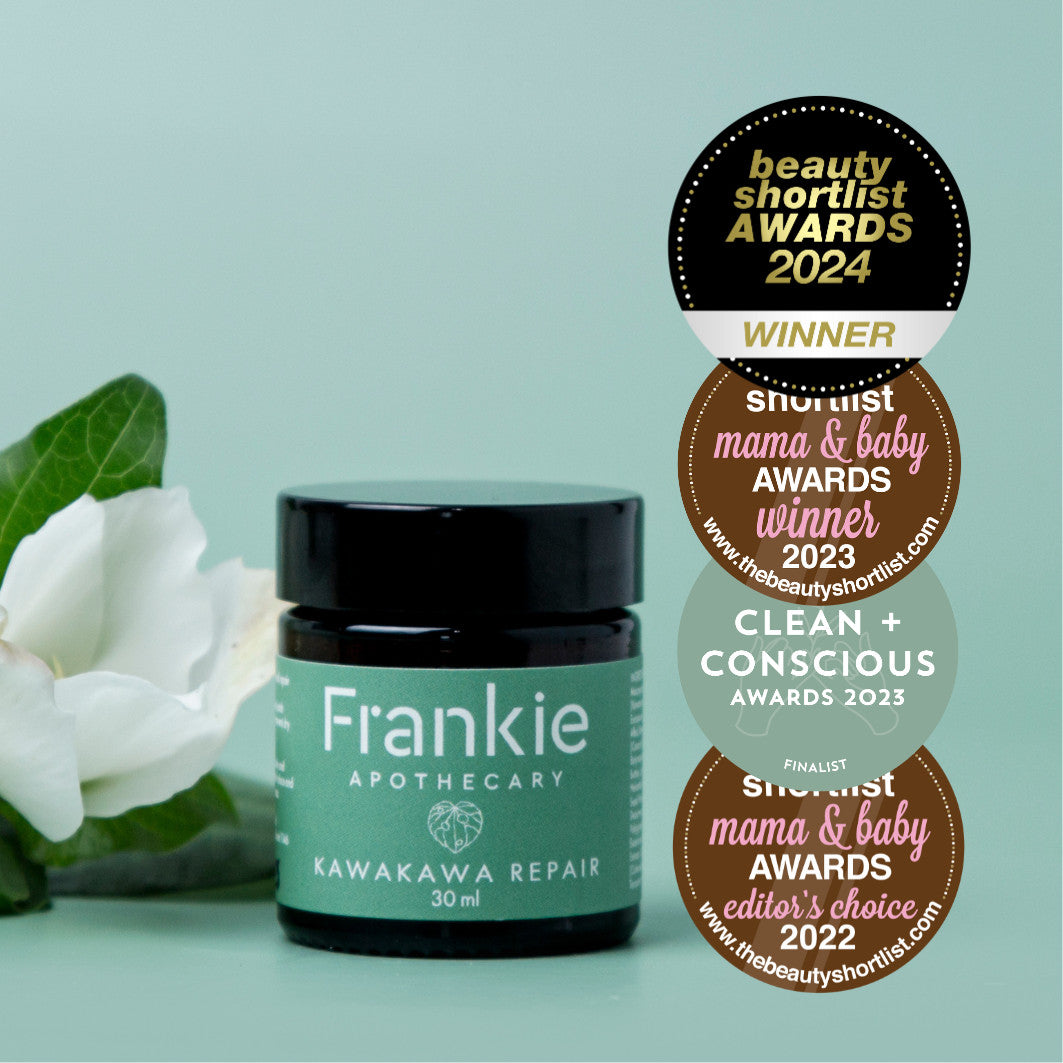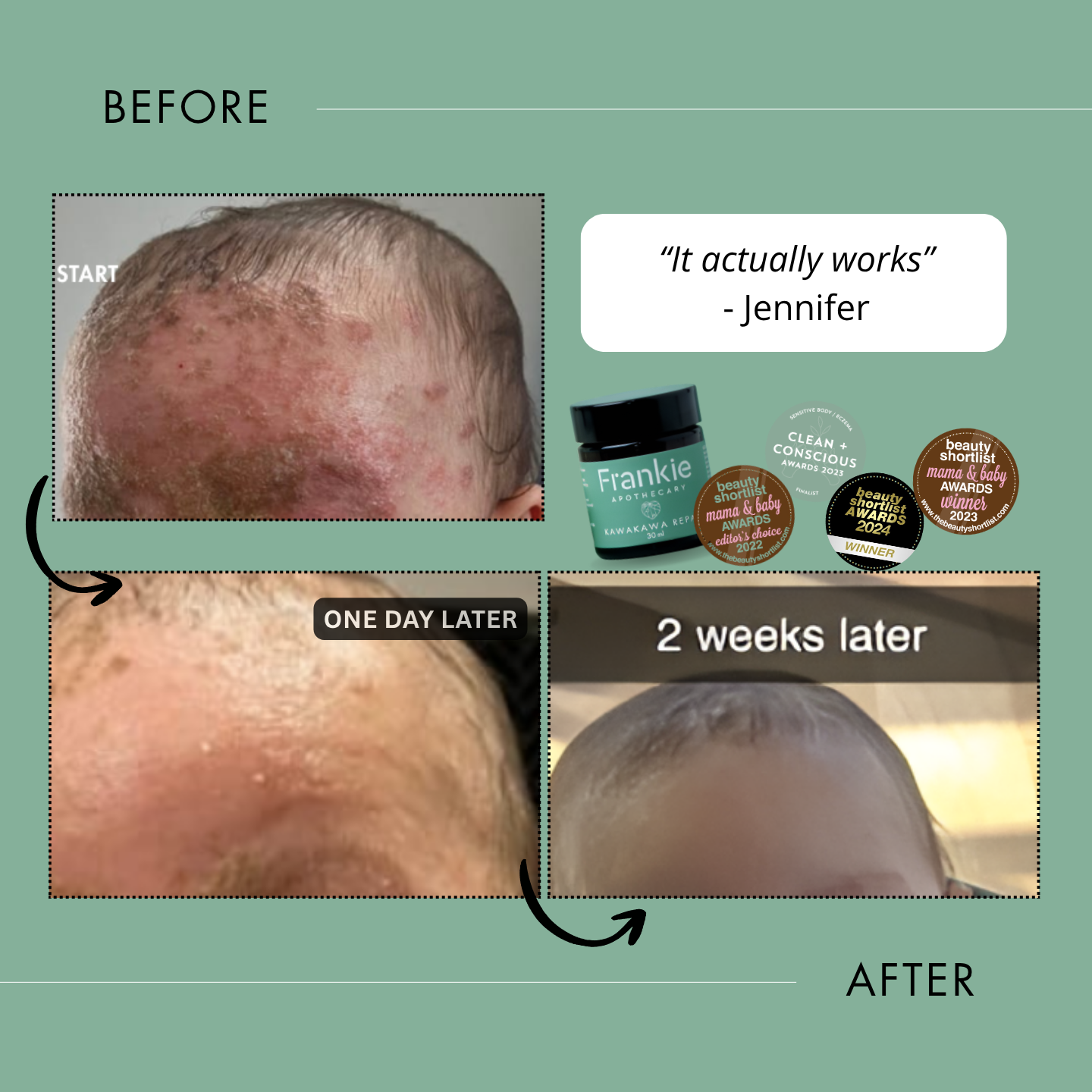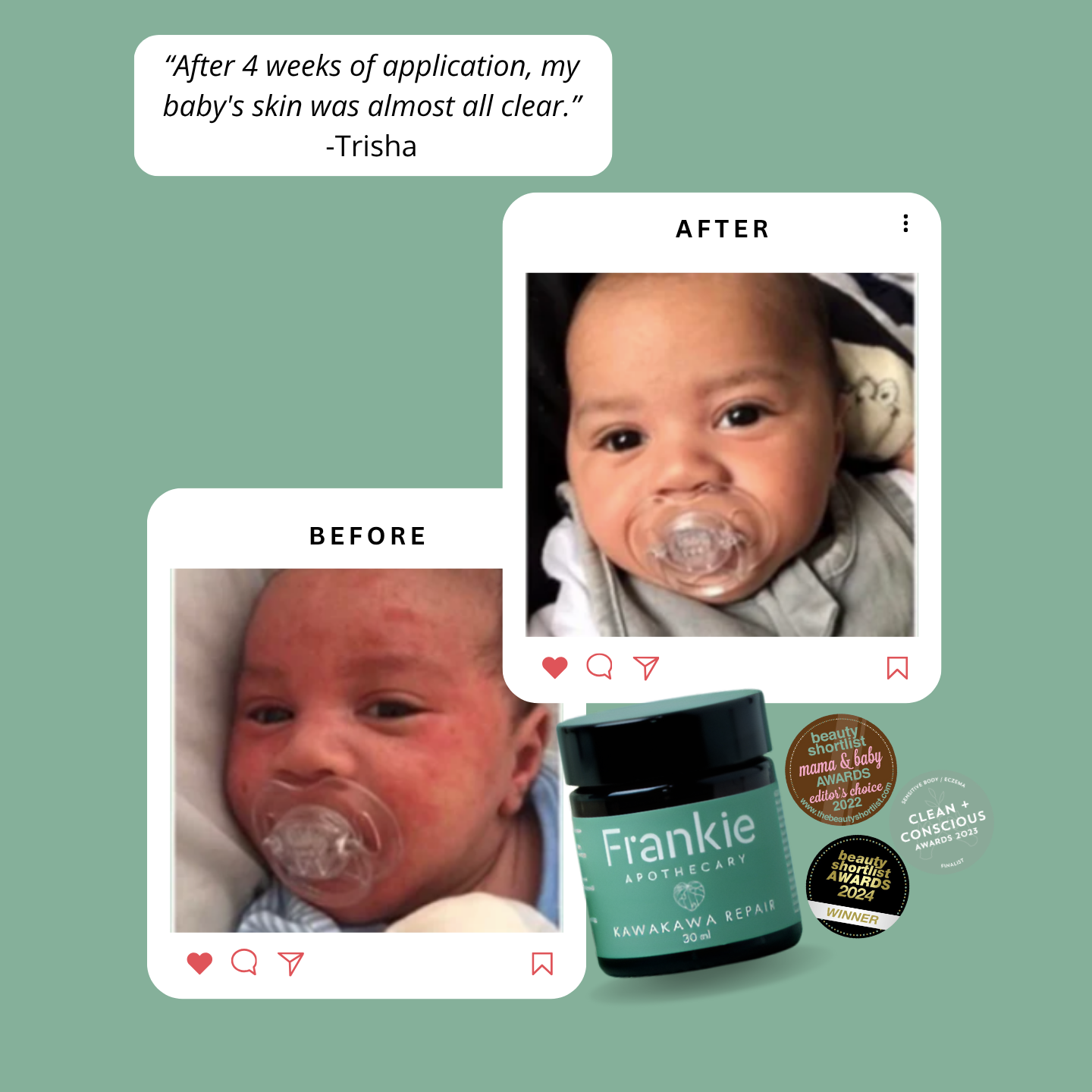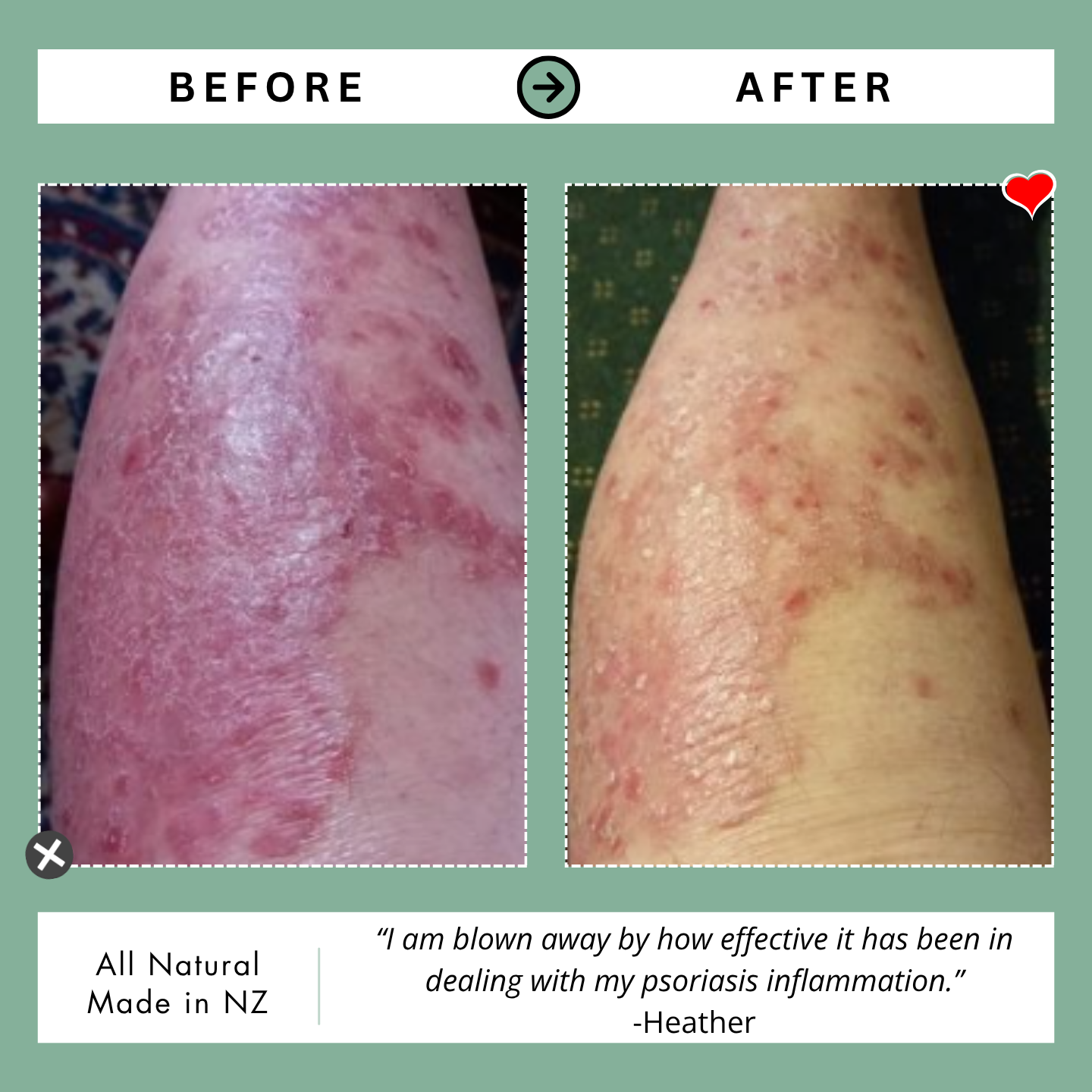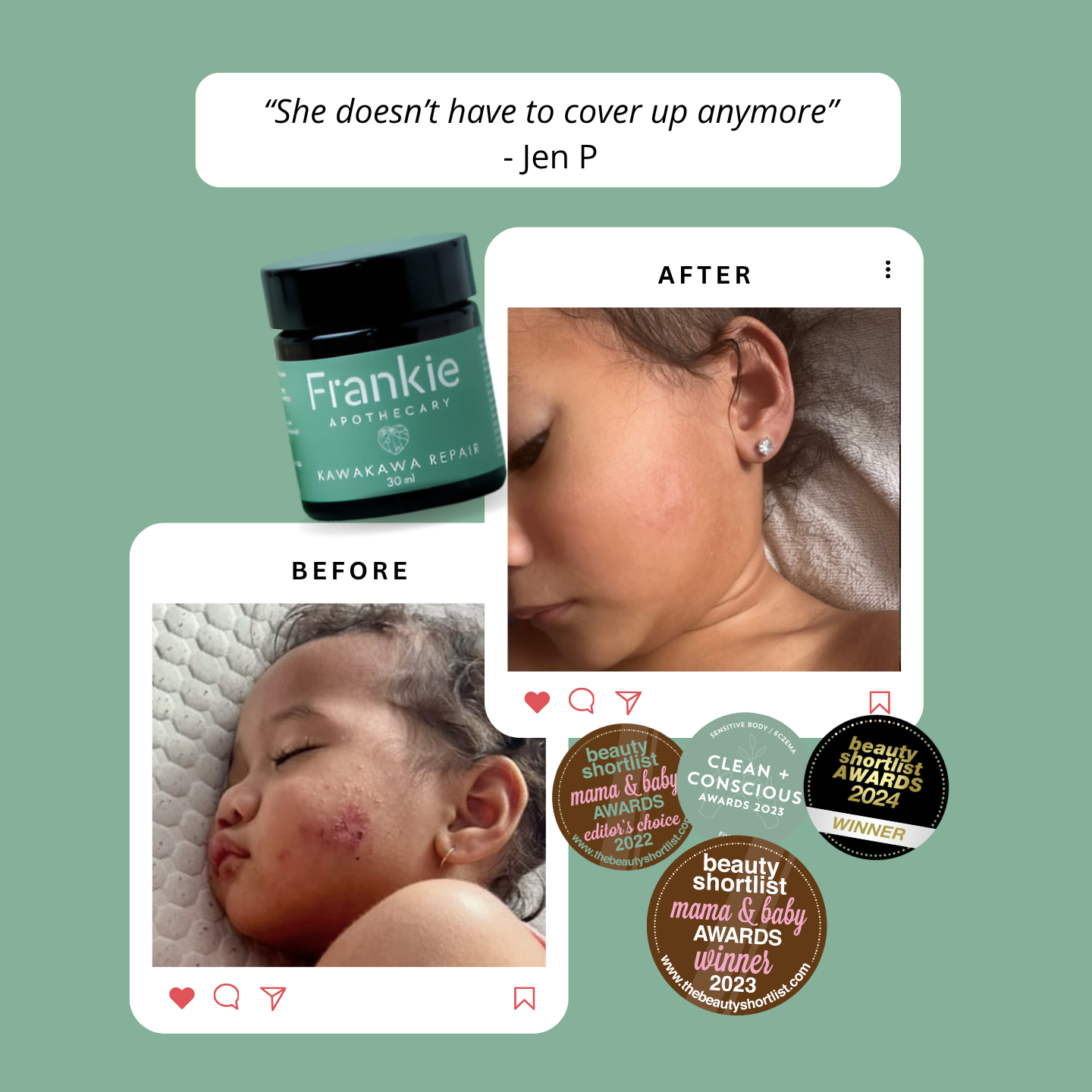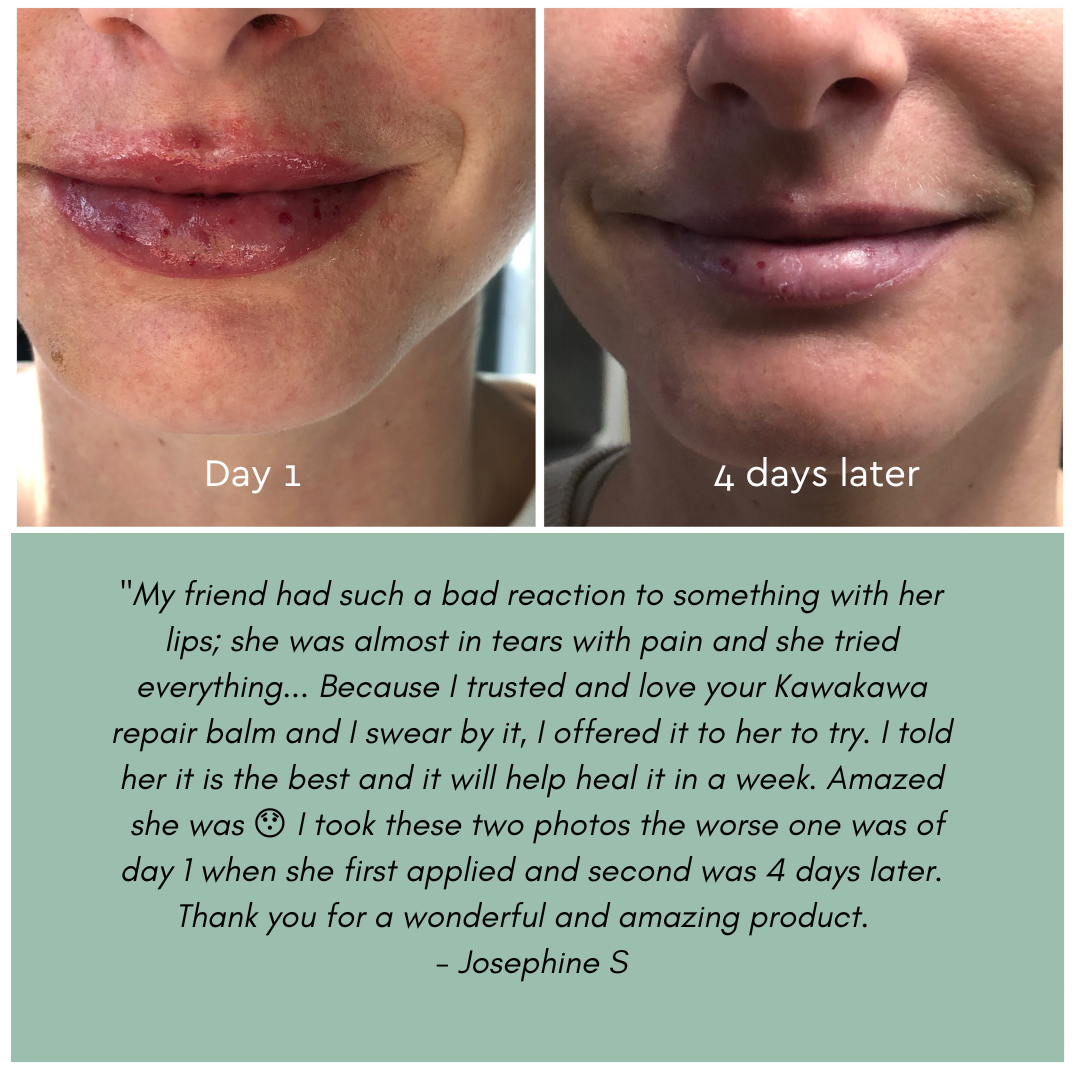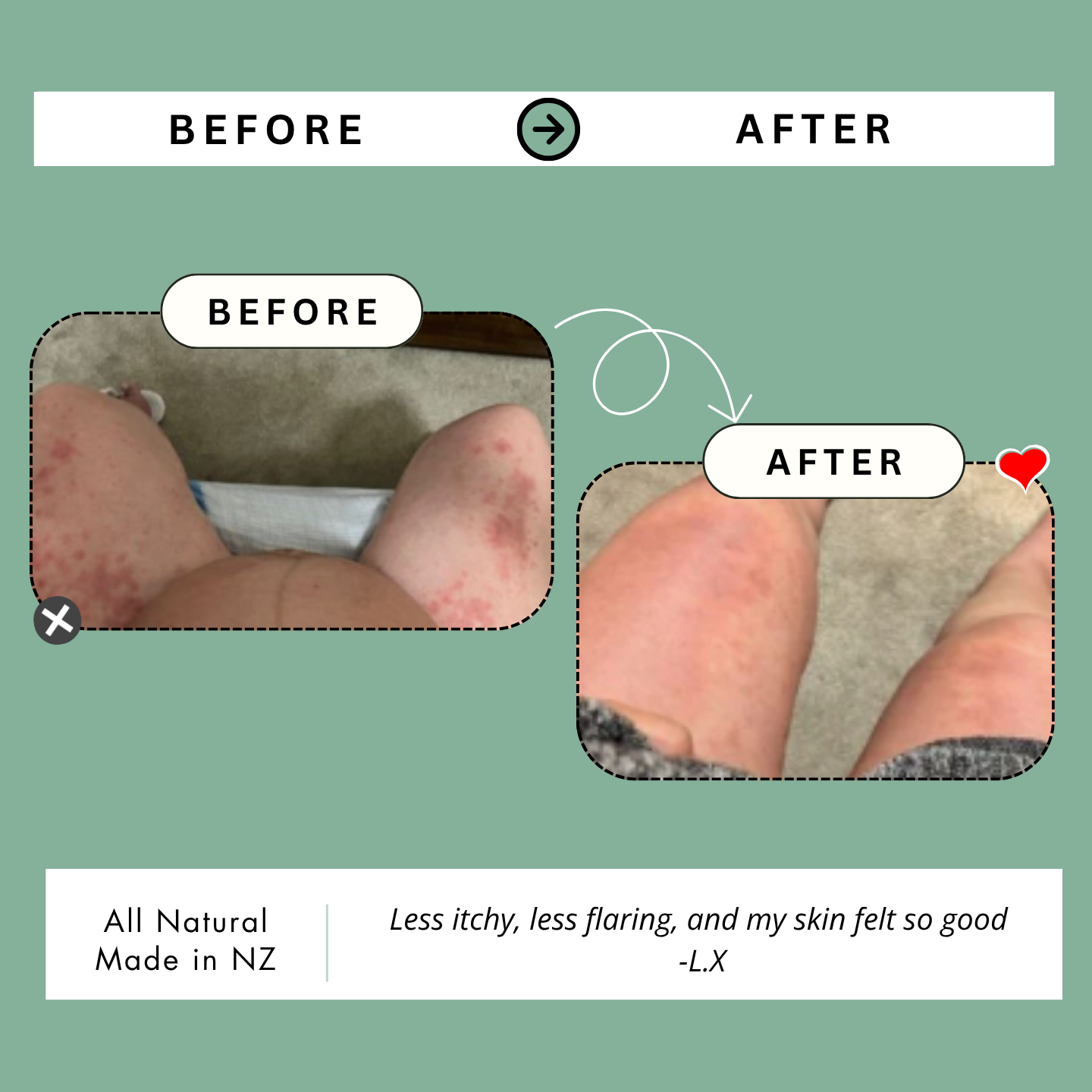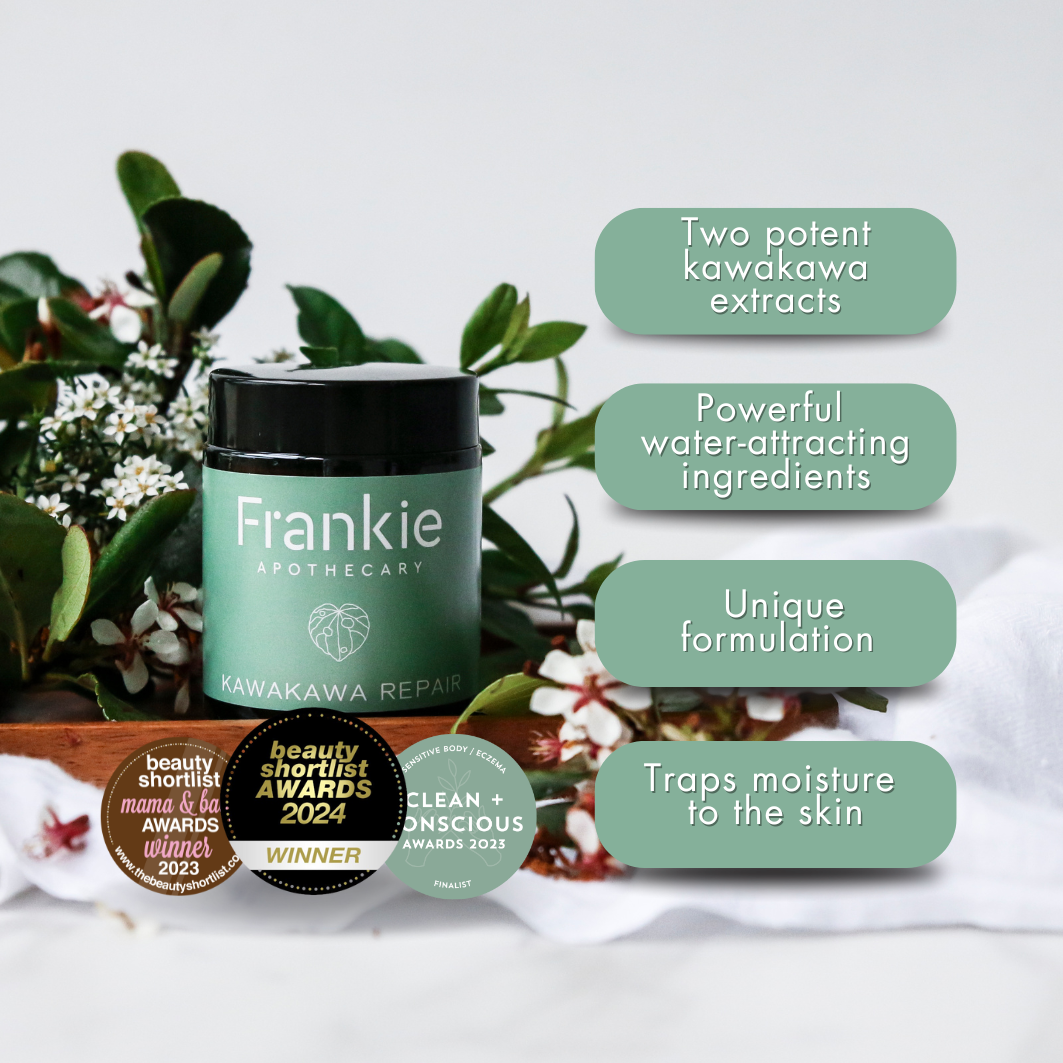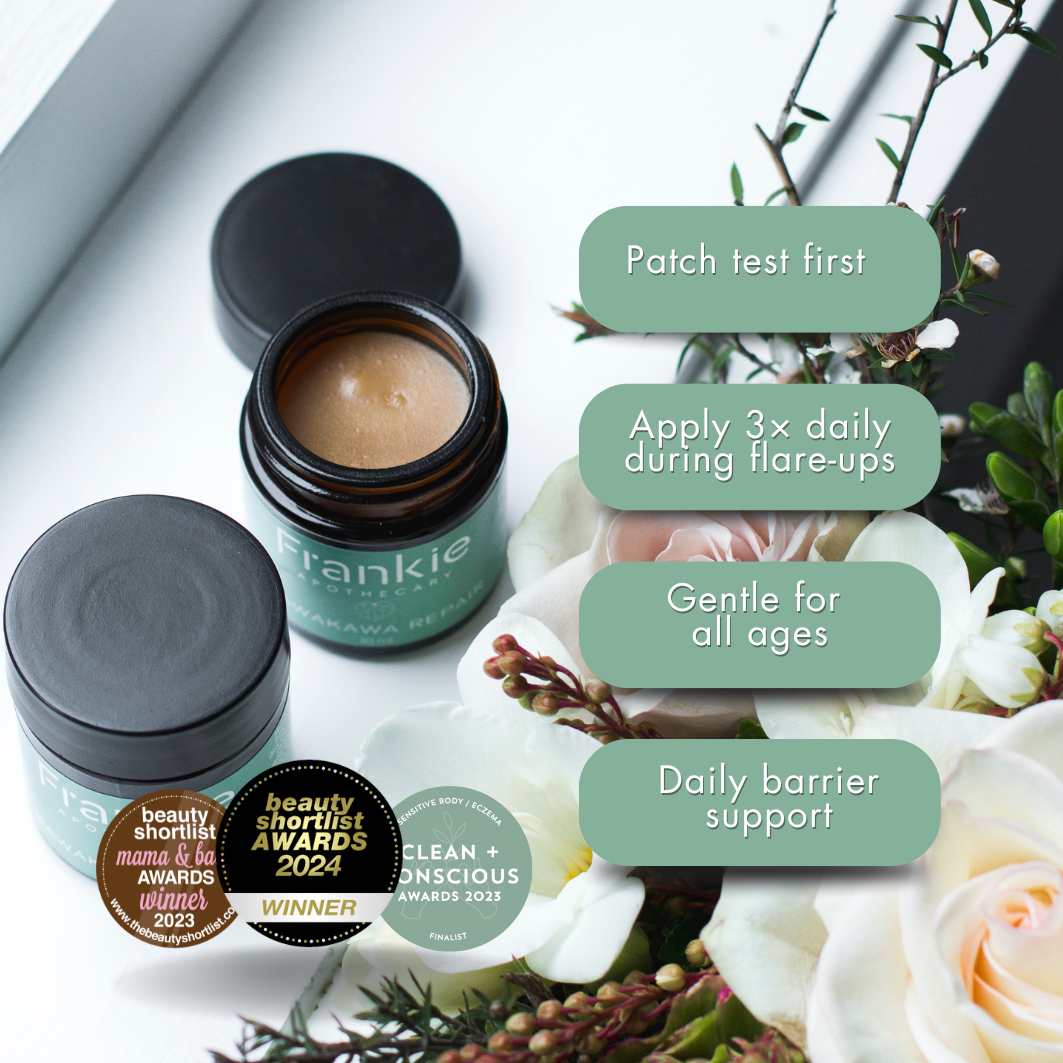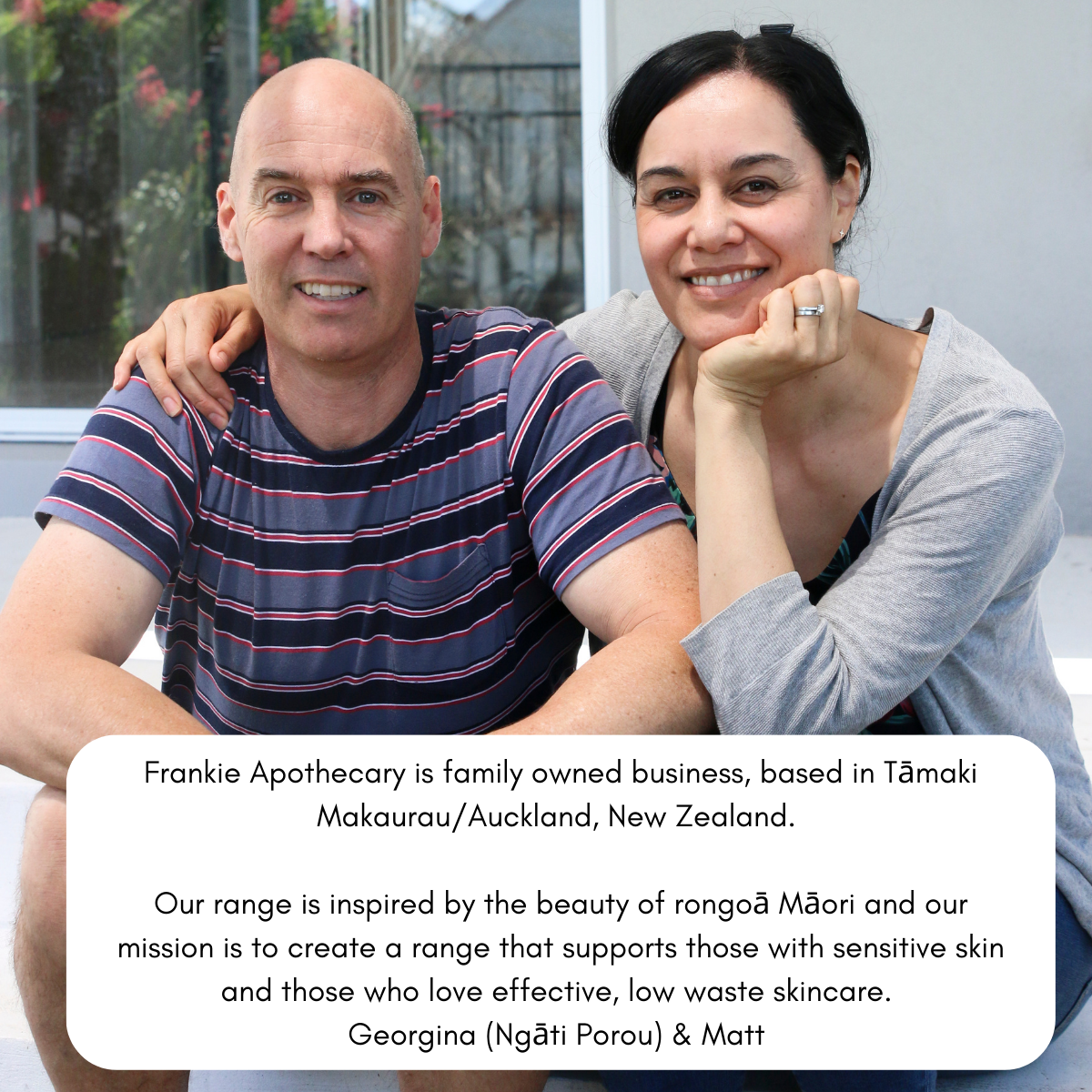Oh eczema - it affects people from all walks of life, and has so many different triggers. People have different symptoms and severities, and find relief through a variety of methods. On top of these variations, the seasons can impact eczema sufferers in different ways!
Some people see the worst rashes and allergic reactions as the weather transitions between temperatures. The cold, drying air of winter is the hardest time for most people with eczema; but many people find their eczema worst in summer. A third of children in this 2021 study published in The Journal of Dermatology with problematic atopic eczema saw flare ups increase during spring and summer.
As always, there are a range of causes for these flare ups, in addition to the usual eczema triggers. Let's begin with reasons why eczema can be worse in summer, and we'll offer a range of ways to lessen or eliminate the impact of each one!
Summer eczema issue #1 - Heat
When the air temperature is hot and our body works to cool off, our blood vessels dilate, which triggers movement of inflammatory cells. Inflammation can cause narrowing of your sweat glands which can trigger skin inflammation and the onset of that awful eczema itching.
Ways to prevent summer heat causing eczema flare ups include keeping your body temperature regulated by using fans (large fans, hand held fans, vintage and very stylish wave about models), cool cotton clothing, and maybe even staying indoors or in the shade during the hottest part of the day. You can take chilled water with you to drink too - drinking plenty of water will help keep your body at a normal temperature, and has other benefits for eczema prone skin (see #8).
Summer eczema issue #2 - Sweat
We sweat to cool our body through creating evaporation on our skin - which is an endothermic (heat absorbing) reaction, so it leaves our skin cooler. It is really useful for fighting issue #1 above... however sweat can worsen eczema as it contains tiny amounts of minerals like sodium, magnesium, lead, and nickel which can irritate sensitive or broken skin. Sweat collects in creases like your armpits or inner elbow and the wetness and bacteria can lead to sensitive skin irritation. Hotter temperatures trigger itch reflexes, making it harder not to scratch patches of eczema. And, some people even have a sweat allergy that triggers eczema.
It's absolutely worth watching your sweat levels! This study published in BioMed Research International concluded that "sweat management for patients with adult atopic dermatitis was extremely useful". The most obvious tactics are to minimise sweat (shade, cool cotton clothes, exercise in the morning or evening) and, importantly, ensure that perspiration doesn’t stay on your body. Change out of wet or sweaty clothing as soon as you can. Pack a soft towel or soft paper wipes to soak up excess sweat when you are on the go. Then, rinse sweat off your skin as soon as you can with fresh water, and re-moisturise with your Kawakawa Body Oil. Bathe daily - see #4 below for more on this topic!
Summer eczema issue #3 - Sunlight
Eczema can improve with exposure to sunlight (especially contact and discoid eczemas), but other people find their eczema gets worse with exposure to sunshine - and in rare cases (photosensitive eczema), eczema is actually caused by exposure to UV light.
Prevent eczema flare ups by wearing cool loose cotton clothing that covers your shoulders and arms, and invest in a few great hats! Seek out the shade and take a picnic umbrella to parties. Having a luke warm bath or shower every day helps clean away bacteria, dust and sweat. A study published in Asia Pacific Allergy showed that children with eczema saw their symptoms improve when they bathed and moisturised daily in summer. As always, using a mild soap like our Kawakawa Cleansing Bar which is suitable for sensitive skin is important.
Summer eczema issue #4 - Allergens
During spring and summer the level of allergens (pollen, moulds, dust mites, fur and pets) in the environment increase, which can provoke histamine release which causes itchiness to increase, but in 2021 scientists identified that people with allergies can produce Immunoglobulin E in response to environmental allergens, which causes a different even more intense itchiness. Having constant itching makes it harder to resist scratching. In addition, the allergens themselves can irritate eczema conditions.
Because environmental allergens are normally hard to eliminate, the most important response is to create a moisture rich skin barrier. Enter (again) our wonderful Kawakawa Balm! If your eczema is serious, speak to your doctor. They may suggest skin testing to identify specific allergies or even allergen immunotherapy (allergy shots or tablets) if you can identify which allergen is affecting you.
Summer eczema issue #5 - Salt water
Swimming in the ocean can be helpful for some people with eczema, as the combination of salt along with UV light (which helps us make more vitamin D too!) can be really beneficial for eczema prone skin. Plus, at the beach you're likely to be relaxing and happy, which is always good. But, if you leave the salt on your skin, it dehydrates the skin, absorbing moisture - and that moisture barrier is so key for sensitive skin.
An easy fix is to wash off the saltwater as soon as possible with fresh, and re-moisturise with kawakawa balm or body oil. The same applies to chlorinated water, so if your family is dealing with eczema, learn where the beaches and pools with fresh showers are, or get in the habit of bringing bottles of fresh water to rinse off with - then as always, gently pat the skin dry, and use your kawakawa balm to lock in moisture.
Summer eczema issue #6 - Sunscreen
Some sunscreens can exacerbate eczema through chemical triggers, or even through the friction of being rubbed in repeatedly - but sun protection is really important.
Remember to reapply sunscreen well (here's our guide for people with excema!) every two hours and after swimming, towelling yourself dry, or sweating. Apply it in smooth downward strokes to avoid causing irritation. Choose cool cotton clothing and wide brimmed hats, or shade, when you can instead of relying only on sunblock alone. The sun’s UV rays are fiercest and hottest from 10 am to 3 pm. If possible, stay in the shade or indoors during this time. You’re less likely to get a sunburn too! Experts recommend a five-day patch test to ensure your sunblock doesn't trigger your eczema. Choose a Mineral Sunscreen that will provide a physical barrier - sunscreens like ours are less likely to irritate the skin, and are more moisturising than chemical sunblocks.
Summer eczema issue #7 - Clothing
Synthetic fabrics and tight fitting seams can chafe and irritate eczema, as well as contributing to sweat build up. Clothes that are too warm can contribute to overheating and also cause skin irritation in summer.
This tip applies all year around especially if clothing is your eczema trigger. Choose clothing that is lightweight, cotton or silk, and looser fitting.
Summer eczema issue #8 - Dehydration
Sweating in the heat means your skin loses extra moisture. And, in summer we can get hot and thirsty and forget to drink enough straight water.
Drinking enough water is important to keep your skin healthy and moisturised from the inside out. In summer if you leave home, take a double walled stainless drink bottle - or two! - to ensure you have plenty of fresh cold water on hand. An electrolyte sports drink can be a good idea if you do a lot of exercise in the heat. Remember, water is always best.
We'll end this list of advice with the most important one... have fun! Enjoy our beautiful country, and have a wonderful summer!
Thanks to Kiwi Photographer Tim Marshall for the amazing image of Mangawhai waves!



